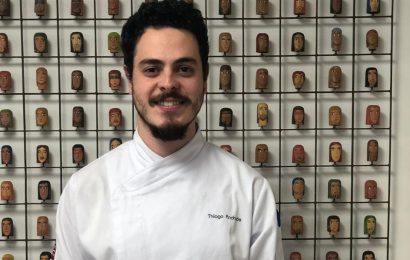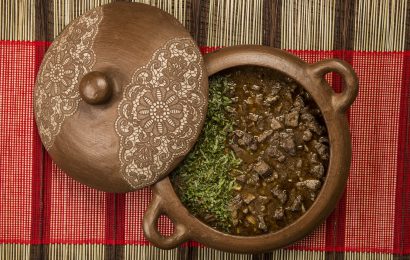The emotional testimony from chef Janaína Rueda about the end of her work with school meals in the State of São Paulo was one of the highlights of the event
Rafaela Polo
Food Female took place today (March 19th) in São Paulo. The event was a reunion of women that work in the gastronomy area to promote discussions and chats about different subjects in the food business. The stage was taken by nutritionists, politicians, chefs, sommeliers, teachers, entrepreneurs, communicators, social leaders. The emotional testimony from chef Janaína Rueda about the unexpected end of her project “Cozinheiros Pela Educação” that had the aim of changing school meals and forming school cooks in the state of São Paulo, attracted attention among so many other issues that invite us to reflect. You can soon read the full article on our website.
The second edition of Food Female took place last Tuesday (March 19th) in São Paulo and was a meeting that reunited the “gastronomy women” to chat and discuss different subjects. It resulted in lots of rich stories, experiences and exchanges among the participants.
The day started with presentations of research into land with Keilla Malvezzi, from Feira Viva, the agronomist and researcher Sandra Maria and the nutritionist Valeria Paschoal. Valéria exhibited her research on Brazilian nutrient-rich ingredients, such as ora pro nobis (which has more protein than quinoa) and chaya (which has more antioxidant than popular açaí).
O segundo painel abordou projetos sustentáveis e teve a presença de Daniela Leite, da Ong Comida Invisível (que luta pela diminuição do desperdício de alimentos; da chef Lis Cereja, do restaurante Enoteca Saint Vinsaint (que é sustentável e usa apenas insumos orgânicos), e a jornalista Claudia Visoni, deputada da Bancada Ativista. “Gastronomia e nutrição, por muito tempo, foram frentes que brigaram, como clãs completamente distintos. Só nos últimos anos tivemos uma aproximação desses dois mundos”, celebrou Lis.
The second panel covered sustainable projects and was attended by Daniela Leite, from the NGO Comida Invisível (who fights to reduce food waste); chef Lis Cereja, from the restaurant Enoteca Saint Vinsaint (which is sustainable and uses only organic ingredients), and journalist Claudia Visoni, deputy and member of the Bancada Ativista. “Gastronomy and nutrition were, for a long time, fronts that fought as if they were completely different clans. Only in the last few years did these two worlds get closer and together”, celebrated Lis.
There was also a discussion about a very important issue among women: acceptance. In a panel on behavioral nutrition, nutritionists Manoela Figueiredo and Marle Alvarenga, together with journalist and professor Helena Jacob, commented on the effects of the pressure for perfect bodies on eating and on eating disorders. “Knowledge frees us and helps a lot. But it does not free us from the image that others create”, said Helena. The idea of the perfect body, the myths of food quality and safety were addressed in a very direct conversation.
The conversation about education with Rosa Moraes (from the Laureate group of universities); chef Janaína Rueda (from Bar da Dona Onça); the municipal secretary of Social Development, Aline Cardoso; and educator Adélia Rodrigues (partner of Gastronomia Periférica) held one of the most striking and emotional moments of the day. Janaína cried when she talked about the unexpected end of her work ahead of the project “Cozinheiros Pela Educação”. “I would never think anyone would have the courage to end a project that was so successful and honest because of ego and power,” lamented the chef. Her appeal was heard with attention by the municipal secretary, who offered to send a complaint about the end of the project to the governor of São Paulo – and she was applauded by the public.
The sommelier Gabriela Monteleone (who has already given classes at Instituto Brasil a Gosto,watch the video); Patrícia Durães, operations director at Clandestino Restaurante (and one of the members of our Expedition through Quilombo de Ivaporunduva), and Valéria Gonçalves, from Giulietta Restaurante (who has worked at the Brasil a Gosto restaurant) had were also on the stage to talk about new service formats. At the last table, businesswoman Patrícia Abbondanza, from the Food Lab; the confectioner Camila Dutra, from the school Feito com Amor; and journalist Helena Mattar talked about new business formats in gastronomy.
It was certainly a day full of learning and knowledge.



